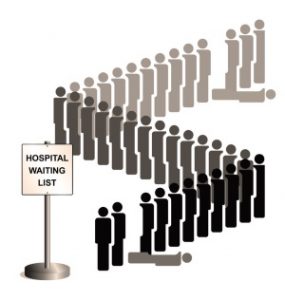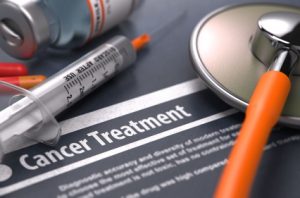While many personal injury claims will include a degree of medical costs, where do these go and how are they calculated? This is unlikely to be a question you have asked yourself, but it does prompt some interesting thoughts. We will now take a look at personal injury claims, medical costs and the relatively unknown NHS Injury Costs Recovery (ICR) scheme. However, before we do so let us take a look at the type of damages which can be awarded.
General damages and special damages
When looking to claim compensation for a person injury, as a consequence of negligence by one or more third parties, you are entitled to claim general damages and special damages. These are two very different types of damages and are broken down as follows:-
General damages
There are numerous slightly different definitions of general damages, but in the most basic form they are:-
Damages for pain and suffering, directly associated with injuries incurred as a consequence of negligence
For example general damages may include compensation for:-
- Physical pain and suffering
- Impairment
- Mental pain and suffering
- Reduced quality-of-life
- Impact on family life
- Reduced career prospects
- Difficulty finding employment
This is just an example of some of the more common types of general damages. Note that there is no mention of financial compensation, loss of earnings, etc.
Special damages
In many cases you will see special damages dwarf those of general damages, especially where there are significant medical expenses. In the most basic form, special damages are defined as:-
Financial recompense, reimbursement of out-of-pocket expenses
While there is a degree of flexibility when it comes to general damages, this is not the case with special damages. For example, if you can prove that your injuries impacted your career earnings to the value of £200,000, then you are entitled to claim this under loss of income/earning capacity. Some of the more common examples of special damages include:-
- Short-term medical expenses
- Long-term medical expenses
- Loss of income
- Loss of earning capacity
- Transportation costs
- Repair/replacement of damaged property
The type of special damages claimed and the level of compensation received can vary significantly from claim to claim.
Medical expenses
If we look at medical expenses in isolation, they can include an array of different charges such as:-
- Consultant fees
- In/out patient charges
- Diagnostic tests
- Treatment
- Physiotherapy
- Medication
The medical element of some personal injury claims can run into millions of pounds where the victim is perhaps brain-damaged or paralysed. In many cases, the level of medical expenses can run into thousands or tens of thousands of pounds. However, this prompts the question, who receives them?
Recouping NHS and private healthcare costs
NHS treatment is still thankfully available to the masses. While private healthcare insurance is more popular today than ever, it can be expensive. So, if you require medical treatment after an accident, are you obliged to use NHS services or can you go private?
At this point it is worth noting that many of us will assume that NHS services are “free”, while private medical healthcare is expensive. To a certain extent this is correct, with NHS services available to all, free of charge at point of delivery. So, should we assume that if a victim makes use of NHS services, there will be no medical expenses to claim? No……
NHS treatment expenses
Where an individual is injured and requires NHS treatment, this can be reclaimed by the NHS in the event of a successful compensation award. It is important to note that where negligence has not been proven, the NHS will not be able to reclaim expenses. In effect, the courts have deemed that the defendant was negligent, caused the accident/injuries and resulting medical costs. In this scenario, it seems fair that the NHS is able to reclaim treatment expenses?
Process of reclaiming NHS medical expenses
Many people are not aware but there is legislation which obliges insurers/solicitors to inform the Secretary of State about personal injury compensation claims. Upon receipt of claim details, the Compensation Recovery Unit (CRU) will, where applicable, contact the appropriate NHS body which supplied the treatment/services.
The following table will give you an idea of the daily cost of outpatient services, inpatient services and individual ambulance journeys:-
| Accident date (on or after) | Outpatient | Inpatient | Cap | Ambulance charges (per person per journey) |
|---|---|---|---|---|
| 1 April 2020 | £743 | £913 | £54,566 | £224 |
| 1 April 2019 | £725 | £891 | £53,278 | £219 |
| 1 April 2018 | £688 | £846 | £50,561 | £208 |
| 1 April 2017 | £678 | £833 | £49,824 | £205 |
| 1 April 2016 | £665 | £817 | £48,849 | £201 |
| 1 April 2015 | £647 | £796 | £47,569 | £195 |
| 1 April 2014 | £637 | £783 | £46,831 | £192 |
| 1 April 2013 | £627 | £770 | £46,046 | £189 |
| 1 April 2012 | £615 | £755 | £45,153 | £185 |
Source: Gov.UK (Contains public sector information licensed under the Open Government Licence v3.0).
If we take the example of an individual requiring seven days inpatient treatment, and two ambulance journeys, the cost would be:-
7 x £913 = £6391
2 x £224 = £448
Total = £6839
You will also notice that currently there is a cap of £54,566 per medical expenses claim per individual. This is the maximum amount that the NHS can reclaim from the defendant/insurance company.
Points of note
While this all seems very straightforward, there are a number of other issues to take into consideration such as:-
- Cases involving shared liability
Where the compensation awarded has been reduced as a consequence of joint liability, involving the claimant and the defendant, any medical claim from the NHS would be apportioned on the same basis. If there was £20,000 of NHS costs and the judge ruled a 50-50 split on negligence, the NHS would only be able to claim £10,000. Note, the NHS would not pursue the claimant for the balance.
- Inpatient/outpatient expenses
In all cases, preference will be given to inpatient medical expenses where both are required. So if the split between expenses was £5000 for inpatient and £5000 for outpatient, the NHS would only be able to claim £5,000 for inpatient expenses.
- Industrial diseases are excluded
The cost of treating industrial diseases, such as those involving asbestos, cannot currently be reclaimed from the third-party compensator/insurer. However, we know that the Scottish parliament is currently looking at this situation with a view to including industrial diseases. When you consider the often high expense of treating many industrial diseases, this could involve significant amounts of money.
Funds reclaimed
Whether reclaimed directly from the defendant or via their insurance company, would you hazard a guess as to the level of annual funds reclaimed? The following table shows the month by month collection figures for the tax year 2019/20:-
| Month | England | Scotland | Wales | Ambulance trusts | Total |
|---|---|---|---|---|---|
| April 2019 | £12,626,395 | £932,641 | £875,339 | £594,345 | £15,028,719 |
| May 2019 | £13,814,309 | £1,156,989 | £819,713 | £615,441 | £16,406,452 |
| June 2019 | £14,656,373 | £1,234,676 | £827,007 | £678,603 | £17,396,659 |
| July 2019 | £13,942,094 | £1,241,124 | £949,211 | £629,766 | £16,762,195 |
| August 2019 | £12,988,090 | £960,139 | £732,809 | £573,006 | £15,254,035 |
| September 2019 | £13,313,171 | £1,378,480 | £894,991 | £649,359 | £16,236,001 |
| October 2019 | £15,106,151 | £1,527,236 | £744,355 | £670,051 | £18,047,792 |
| November 2019 | £14,833,902 | £1,250,042 | £774,964 | £662,661 | £17,521,569 |
| December 2019 | £13,138,748 | £974,103 | £617,215 | £561,492 | £15,291,559 |
| January 2020 | £15,154,262 | £1,346,025 | £993,186 | £713,667 | £18,207,140 |
| February 2020 | £14,379,551 | £1,276,838 | £842,220 | £653,993 | £17,152,601 |
| March 2020 | £14,046,911 | £1,264,939 | £743,656 | £627,932 | £16,683,438 |
| Total 2019 to 2020 | £167,999,957 | £14,543,223 | £9,814,667 | £7,630,315 | £199,988,161 |
Source: Gov.UK (Contains public sector information licensed under the Open Government Licence v3.0).
As you will see, the combined reclaimed NHS medical expenses for England, Scotland and Wales was nearly £200 million for the last tax year. This is money received by the NHS, not ongoing claims or funds awaiting payment.
Private medical costs
The situation with regards to private medical costs is not as straightforward as you might assume. In theory, there is nothing to stop you from using private medical services to assist with your treatment/recovery. However, in the past we have seen defendants argue against private medical costs on the following basis:-
- Treatment is available on the NHS, at no cost
- The claimant was previously unlikely to make use of private medical services
It is highly likely that a defendant would question relatively high private healthcare costs, if only as an initial bargaining tool. Therefore, it is up to the claimant to have their own arguments ready. These might include:-
- Treatment unavailable on NHS at short notice
- Lack of specific specialist treatment on the NHS
- Unsuitable location of NHS treatment services
The situation is a little easier where the claimant already has a private healthcare policy. In tandem with the comment above, this obviously indicates an intention to pay for and use private healthcare going forward. Therefore, it would not be unreasonable to use these services, with the medical practitioner reclaiming expenses.
Subrogated claim
If you decide to act on your own, you will no doubt come across what are known as subrogated claims. This covers the issue of third-party losses and the recovery of damages from the defendant in a personal injury claims case. It is probably best to seek the assistance of a personal injury claims solicitor where private healthcare expense claims are involved.
In simple terms, a claimant is not able to recover third-party damages/expenses for their own benefit. That said the claimant can act for the third-party under contract, passing any damages awarded directly to them. This is an issue which is often directly associated with private healthcare costs. Located deep in your private healthcare contract, you may see details of your obligation to pursue expenses on their behalf in this scenario. Failure to do so could lead to legal action against you!
This is the same scenario for insurance policies which cover loss of earnings, as a consequence of injuries received. In the same manner, you will likely see small print in your contract which legally obliges you to pursue the insurance company’s expenses, for your loss of earnings cover. This is where it starts to get a little bit complicated!
Taking professional advice
In principle, the idea of pursuing personal injury compensation is fairly straightforward. You provide details of the incident, proof of negligence and present your compensation request to the court. In practice, it can be very different and the issue of often huge medical costs can lead to various legal obligations.
The reclaiming of expenses by the NHS is fairly straightforward, but not so with private medical insurance. You may inadvertently have signed up to an array of legal obligations in the event of a personal injury claim. You will find that personal injury claims solicitors have a comprehensive checklist of issues to consider. They will look at the incident, proof and advise you on which actions you should take, and which actions you are legally obliged to take.
Summary
Are you one of many who had no idea that the NHS recouped approaching £200 million a year in medical expenses, from successful personal injury claims? While we have no comparable figures available for the private sector, we can guess this must be significant as a consequence of the large uplift in associated costs. When you take a step back and look at the situation from a distance, it makes perfect sense. Insurance service providers forced to pay out, as a consequence of a third party’s negligence, should surely have some recourse to cover their outlay?
It is safe to say that this is one of those subjects which illustrate the importance of taking professional advice.



